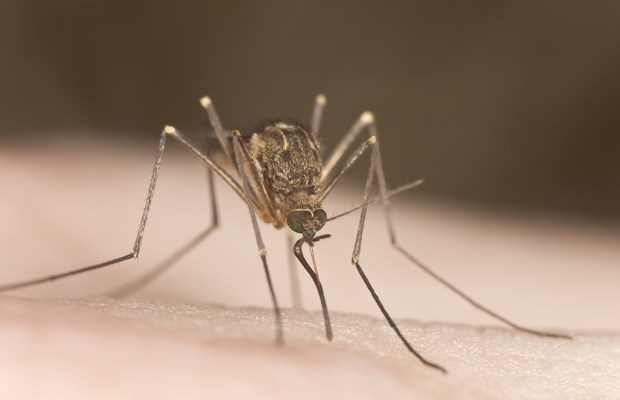
Ouch! How to take a bite out of summer without getting bitten in the process
July 23, 2012 - 9:00 AM
TORONTO - Bee stings and bug bites are usually just a harmless summer annoyance, but experts warn they can also be dangerous and cause serious reactions for some.
There is no way to tell how susceptible a person is to bites or stings, says Sharon Domb, medical director at the Department of Family Medicine at Toronto's Sunnybrook Hospital. The more time people spend outdoors, the more they are at risk.
"Almost all flying insects will target areas of the exposed skin," adds Dr. Gordon Searles, President of the Canadian Dermatology Association.
While mosquito bites are the most common insect irritant, other pests can cause problems away from urban settings.
Searles notes that ticks are often found in campgrounds and migrate to warm, moist areas of the body like the armpit, groin, back of the knee and hairline. Tick bites can pass on bacteria for Lyme disease.
It takes anywhere from 24 to 36 hours for the tick to transmit the bacteria into your bloodstream, says Domb, so it's a good idea to do frequent checks.
If a tick is spotted, Searles recommends using tweezers to gently grab the head and pull it away from the skin.
Tick bites, however, only manifest themselves a month after the initial contact takes place.
"You'll get a specific rash," explains Domb. "It's sort of like a lesion. It's a fairly big and expanding pink lesion."
Not all tick bites result in Lyme disease, but if a rash develops, Searles suggests seeking immediate medical treatment.
Mosquitoes, meanwhile, can pose a greater risk in areas where West Nile disease has been identified, says Dr. Richard Rusk, medical officer at Manitoba Health. Symptoms include headache, fever, fatigue and muscle pain, but many who are infected don't even know that have the disease.
"There is a higher percentage of people that actually had it without realizing it," says Rusk, adding the most common indicator is flu-like symptoms, which develop two to 14 days after a mosquito bite occurs.
He recommends those who think they might be infected with West Nile to visit a doctor for further testing.
Bee and wasp stings are also common in the summer months, but Domb says they only pose a health risk for the small percentage of the population who show signs of an allergic reaction, which can include hives, swelling of the mouth, tongue or eyes, difficulty breathing, chest tightness, vomiting and dizziness.
Such symptoms can develop within seconds or minutes of the sting and require immediate medical attention.
If you're not sure what insect stung you, look to see if it left a stinger in your skin. Domb says bees leave a stinger, while wasps do not. She recommends removing the stinger by using a flat edge, such as a credit card, to slide it off your body.
"Pinching it actually secretes more of the venom into your skin," she says.
For those who are not allergic, bee stings, wasp stings and bug bites will leave the surface of the skin injured as the insect tries to get to your blood, says Searles.
"The insect needs to keep your blood from clotting, so they have enzymes in their saliva that act like blood thinners," he says. "It is these enzymes that lead to the itch and swelling we associate with the bites."
Domb says the welt will be painful, but can usually be easily treated at home. Searles recommends a pain reliever and a cold compress to minimize swelling. A paste of baking soda and water applied to the welt will also do the trick, he says.
Scratching, though, is a definite no-no.
"The skin is already under attack by the bite and the reaction caused by the enzymes and venoms," says Searles. "Scratching or picking at the skin just adds further injury to the skin and sets up potential bacterial infections."
Of course, the best way to reduce the chance of being bitten is to ward off flying culprits in the first place. Domb suggests scanning the house to find out where insects are coming from.
"Some wasps will create a nest in your tree or under your desk," she says, adding if you see a lot of bug activity in certain areas, try to find the nest and get rid of it.
Mosquitoes breed in pools of standing water, so try to decrease the amount of standing water there is outside.
Insect repellent made with DEET can help to ward off mosquitoes. Domb says DEET is not recommended for babies under six months and that kids should use a product with roughly 10 per cent or less DEET concentration, whereas adults can go up to 30 per cent.
Insect repellents do not ward off bees, so Domb recommends wearing long sleeves and long pants to prevent stings.
And while pesky insects will continue to bite and sting, Rusk says it shouldn't stop people from spending their summer outdoors.
"I think the most important thing is to be aware that there are risks, but the reality is these are actually very small risks," he says. "I encourage people to go outside, be active and experience the outdoors."
News from © The Canadian Press, 2012